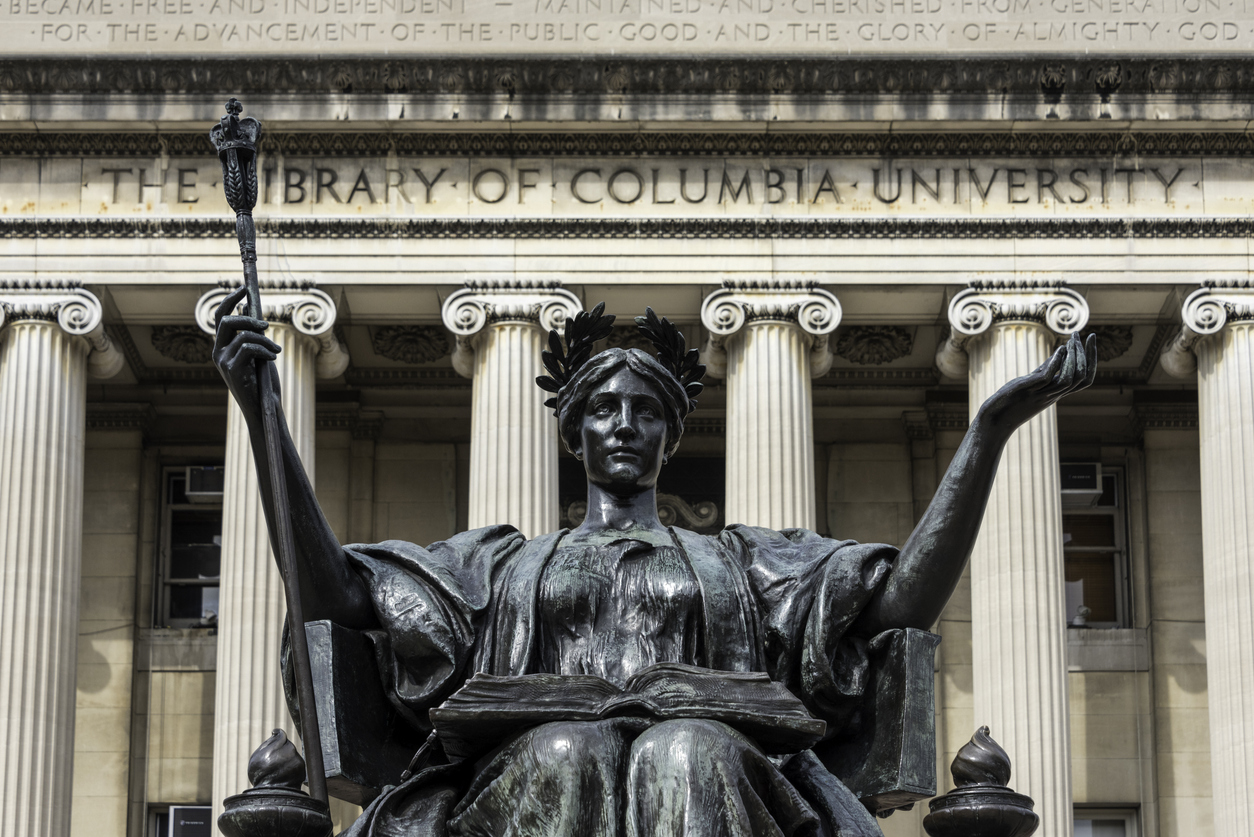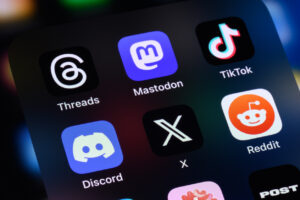The Scoop: Columbia University president hopes to avoid fate of Harvard, UPenn leaders
Plus: NPR punishes editor who published critical article; Crocs and Pringles team up for silly collab.

Columbia University President Nemat “Minouche” Shafik will face questions from Congress today about antisemitism on her university’s campus. And she’s all too aware of the fates that have met two of her predecessors who have been in the same position: resigning their plum positions.
The Wall Street Journal reported that Shafik “has spent weeks preparing intensely for the hearing.”
She also submitted an op-ed to WSJ previewing her testimony. In it, she strongly condemns the Oct. 7 terrorist attacks against Israelis that began the war against Hamas, comparing it to Sept. 11. She also discussed how her college has navigated issues of free speech – by setting up designated protest zones – and noting that university presidents should be “constructive facilitators, not commentators” in the political arena.
From the archive: Crisis communications lessons from Harvard’s response
But most importantly, she discussed the issue that tripped up former Harvard President Claudine Gay and former University of Pennsylvania President Elizabeth Magill before Congress: the use of language that implies genocide.
Shafik wrote:
Calling for the genocide of a people—whether they are Israelis or Palestinians, Jews, Muslims or anyone else—has no place in a university community. Such words are outside the bounds of legitimate debate and unimaginably harmful. No cause is so important as to justify threatening annihilation to anyone. There has to be a better way to make an argument.
Why it matters: The testimony of Gay and Magill shook higher education to its core, leading to revolts among donors, upheaval on campus and reprisals from Congress.
Shafik is working hard to start with a strong PR front, clearly previewing what she will discuss in the Wall Street Journal, the mainstream paper most favored by the conservatives who are likely to be her toughest critics in the hearing.
She did not dodge the question of genocide and will (one would certainly anticipate) be ready to answer questions about chants of “from the river to the sea” and acts of violence on her campus.
We’ll see how she fares under pointed questioning and a wall of TV cameras, but it’s clear she’s starting with a strong offense that clearly outlines her position and weeks of media training.
Will it help her hold onto her seat?
Editor’s Top Reads:
- The NPR editor who wrote a sharp essay criticizing his employer for what he sees as their liberal bias has been punished with a five-day suspension without pay, NPR itself reported. Uri Berliner showed an NPR reporter his disciplinary action, which termed itself a “final warning” for not securing approval before writing for another outlet. While some will see this as retaliation against Berliner, others will see it as a fairly lax punishment for his scathing piece. The action is unlikely to change mindsbut is yet another display of how internal actions can become PR talking points. Update: Later Wednesday, Berliner announced his resignation, saying: “I respect the integrity of my colleagues and wish for NPR to thrive and do important journalism. But I cannot work in a newsroom where I am disparaged by a new CEO whose divisive views confirm the very problems at NPR I cite in my Free Press essay.”
- Meta’s Oversight Board is evaluating how its social platforms have handled the problem of deepfake pornography, CNN reported. “By taking one case from the US and one from India, we want to look at whether Meta is protecting all women globally in a fair way,” said Oversight Board Co-Chair Helle Thorning-Schmidt. Both images involve AI-generated images that resemble prominent female figures, one that was shared on Instagram, another on Facebook. In the past, the Oversight Board has harshly rebuked the company for its handling of other AI incidents, in one case even calling its policies “incoherent.” However, the board can only make recommendations, not policy. This is a unique moment for the world’s biggest social media giant to self-reflect and attempt to clamp down on what is certain to become a growing concern in future years. Clearly communicating its findings and acting on what it learns can help build public trust – or dash it.
- And in publicity stunt news, Pringles and Crocs have teamed up to create a shoe with an incorporated chip holster for Pringles’ trademark cans. The shoes, which have all the style and panache you’d expect from Crocs, start at $50 for classic slides and $100 for a pair of boots. There’s also a new flavor of “Croc-tail Party” chips flavored with watermelon, chili and lime. Axios reports that the shoes came with an influencer campaign already attached and have been spotted at Coachella. And it’s all worked: not only have the shoes already sold out, they’re also getting tons of press. It’s a so-stupid-it’s-clever collab that promotes both brands and helps extend the brand beyond just snack foods.
Allison Carter is editor-in-chief of PR Daily. Follow her on Twitter or LinkedIn.







